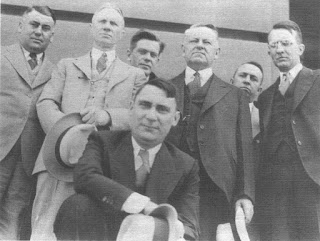However, there is a noticeable drop in how many movies that are released in theaters have much substance to them. Most of them, even many of the good ones, place an emphasis on the style way above the substance. And people have been asking why.
I've personally seen the progress of this, and why it happened; though I didn't recognize what was happening because I thought it was just my own bitterness at failing to become a filmmaker myself. In retrospect, however, I realize that the change was taking place right before my eyes.
It all comes from the film festivals. You see, in order to get a film made, you can't go directly to any studio or production company. They will all tell you that they take no unsolicited materials, which means you have to go through a major agency. You go to the agencies and they all say the same thing, that you have to go through a manager. Most managers will say the same thing, and the buck stops there. It's a catch 22; an incestuous relationship among Hollywood insiders of which no one can break in.
The only way to slip through is in a film festival. If you can get a film accepted into one of those, the agencies will go to them and will contact you to represent you. You can then submit your projects to the studios through your agent, and those are the films that get made. Even the "independent" companies that claim to be outside the Hollywood system work this way. (It's called hypocrisy.)
So the real gatekeepers are those deciding what films show at the film festivals. These festivals were originally created to build up creative talent and independent voices outside the studio system. Many of the early films were rough around the edges but had a spirit to them that sparked viewers' interests. As a great example of this, check out Peter Jackson's first film that got accepted to the Cannes Film Festival.
Films like this would never get accepted into festivals today because they're not sleek enough, or because they don't have a famous name in them; and thus, one of the greatest directors of all time would be overlooked. How many other Peter Jacksons are being overlooked today because of this reason? We'll never know.
Instead, most of the films that get accepted have high production value, and little attention is paid to story or character. Sometimes films have style and some of the other elements, but only style makes a difference in whether or not a movie gets accepted. Thus you wind up with filmmakers that are all about flash going to these festivals and getting through the gates to be able to pitch to studios.
The only way to break this cycle is for production companies and studios, or at least agents, to open up their ears to other voices that didn't have to go through such a narrow-minded corridor. It's the reason why Youtube has such fresh voices that we're not seeing in the movie theater, and why staying home and watching something for free is often more appealing to people than paying money to go see movies that are full of style and lacking on substance.

